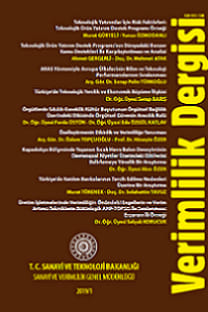Farklı bir Ülke, farklı bir kültür: kültür şoku (kültürlerarası adaptasyonun sağlanması)
Kişinin yeni bir kültüre adapte olma sürecinde çeşitli güçlüklerle (dil, yeme ve içme, ilişkiler vb.) karşılaşması olasıdır. Farklı ve yeni bir kültür içerisinde "öteki" olma duygusunun yoğun olarak yaşanması ve karşı karşıya kalınan yeni deneyimlerin varlığı kişide bir baskı hissi yaratmaktadır. Heyecan, endişe, belirsizlik, korku vb. duyguların bir karışımı olan ve kişide kaybolmuştuk hissi uyandıran bu duruma kültür şoku adı verilmektedir. Kültür şoku, özellikle uluslararası alanda çalışan yöneticiler, diplomatlar, teknik personel, misyonerler, askeri personel ya da eğitimini yurtdışında devam ettiren öğrencilerin karşı karşıya kaldığı bir problem olarak ele alınmaktadır. Söz konusu bu kişilerin içinde yer aldıkları kültüre adapte olabilmesi için yaşayacakları kültür şokunun farkında olması ve kültürşokunun nasıl aşılabileceği hakkında bilgilendirilerek kültürlerarası duyarlılığın geliştirilmesi gereklidir. Böylece kültürlerarası ilişkilerden doyum elde etmek, hem ekonomik hem de kültürel anlamda başarı elde etmek ve kültür şoku semptomları nedeni ile bir yaralı olmamak mümkün olabilmektedir. Bu çalışmada kültür şoku kavramı ve teorisi, süreçleri, kültürlerarası adaptasyonun sağlanması için kültürlerarası etkileşimin ve kültürlerarası iletişim yeterliliğinin öneminin açıklanılması hedeflenmektedir.
Anahtar Kelimeler:
-
A different country, a different culture: the culture shock (enabling intercultural adaptation)
People may face various difficulties (language, eating and drinking culture, social interactions etc.) in the process of the adaptation to a new culture. Experiencing the feeling of''otherness" in the new culture and offacing of new experiences creates pressure on the person. This condition which is a mixture of excitement, anxiety, uncertainty, fear etc. and which makes a person feel lost is named as culture shock. The culture shock is a problem which is faced particularly by managers, diplomats, technicians, missioners and military personnel who work abroad or the students who continue their education abroad. In order for these people to adapt to the culture they live in, to be aware of the culture shock and to develop the intercultural sensitivity by being informed about how to handle it is a necessity. Thus, it is possible for a person to feel satisfied with the intercultural relationships, to be successful in both economic and cultural fields and not to be hurt by the symptoms of the culture shock. This study aims to explain the concept of the culture shock and theory, its processes and the importance of intercultural interaction and communication for providing intercultural adaptation.
Keywords:
-,
___
- . BENNETT, Janet M.; BENNETT, MiltonJ. (2003), "Developing Intercultu-ral Sensivity, An Integrative Approach to Global and Domestic Diversity", D. Landis, J. Bennett, M.Bennett (Red), Handbook of Intercultural Training, ss. 147-165)
- • BREIN, Michael; DAVID, Kenneth H. (1971), "Intercultural Communication And The Adjustment of The Sojourner", Psychological Bulletin, Vol.76, No.3, ss. 215-230
- . BROWN, Lorraine; HOLLOWAY, Immy (Feb.2008), "The initial stage of the international sojourn: exciment or culture shock?", British Journal of Guidance&Counselling, Vol.36, No.i, ss. 33-39
- . FEICHTINGER, Claudia; FINK, Gerhard (1998), "The collective culture shock in transition countries- theoretical and emprical implications", Leadership&Organization Development Journal, 19/6, ss. 302-308
- • FINFGELD-Connett, D. (2005), "Clarification of social support", Journal of Nursing Scholarship 37(1), ss.4-9
- • GUILLEN Nieto, Victoria. (2005), "The invisible face of culture: why do Spanish toy manufacturers believe the British are most peculiar in business?", Thistles: A Homage to Brian Hughes. Eds. J. Mateo Martinez and F. Yus Ramos. Alicante: Departamento de Filologia Inglesa. Universi-dad de Alicante. 2, ss. 95-127
- . HAMMER, Mitchell R.; BENNETT, Milton J.; Wiseman, Richard (2003), "Measuring intercultural sensitivity: The intercultural development inventory", International Journal of Intercultural Relations, 27, ss.421-443
- • IRWIN, Rachel (2007), "Culture Shock: Negotiating feelings in the field", Antropology Matters Journal, Vol 9 (1), ss. 1-11
- • JANSSENS, Maddy (1995), "Intercultural interaction: a burden on inter national managers?, Journal of Organizational Behavior, Vol 16, ss. 155-167
- . JUFFER, Kristin A. (1985), "Researching Culture Shock: The Culture Shock Adaptation Inventory", International Studies Association National Convention, Washington, www.actionresearchinc.com), ss. 2-13
- . KAYE, Marianna; TAYLOR, William G.K.(1997), "Expatriate culture shock in China: a study in the Beijing hotel industry", Journal of Managerial Psychology, 12 (8), ss. 496-51
- . LAMBERT, Jonamay; MYERS, Selma (1994), 50 Activities of Diversity Training, Human Resource Development Press, Inc. Amherst, Massachusetts
- . LAWSON, Diana R.; RUDD, Jill E.(2007), "The Role of Intercultural Communication Competency in Global Business Negotiations", Communicating Global Business Negoatiations: A Geocentric Approach, Sage Publications, USA
- . MUMFORD, D.B. (1998), "The measurement of culture shock", Soc. Psych iatr Epidemiol, 33, ss.149-154
- . PANTELIDOU, Stella; CRAIG, Tom K.J. (2006), "Culture Shock and social support", Soc.Psychiatry Psychiatr Epidemiol, 41, ss. 777-781
- • PEDERSEN, P. (1995), The five stages of culture shock: Critical incidents around the world, Westport Conn: Greenwood Press
- . PYVIS, David; CHAPMAN, Anne (2005), "Culture shock and the international student offshore", Journal Of Research In International Education, 4, ss.23-42
- . SAVICKI, Victor; ADAMS, İngrid; WILDE, April; BINDER, Frauke (2008), "Intercultural Development: Topics and Sequences", The Interdisciplinary Journal of Study Abroad, XV, ss.111-126
- . TAVEGGIA, Thomas C.; SANTOS, Lourdes; GIBBONEY, Nieves (2001), "Cross Cultural Adjustment, A Test of the 'Uncertainty Reduction Principle", International Journal of Cross Cultural Management, Vol.1 (2), ss. 153-170
- . TSYTSAREV, Sergei; KRICHMAR, Lana (2000), "Relationship of Perceived Culture Shock, Length of Stay in the U.S., Depression, and Self-Esteem in Elderly Russian-Speaking Immigrants", Journal of Social Distress and the Homeless, Vol.9, No.1, ss. 35-49
- . VARHEGYI, Vera; NANN, Stephanie, "Identifying intercultural competences, A research report on the field research performed in the intercul-tool Project", intercultool.euA/VP2_Research_Report_pdf.pdf
- . ZHOU, Yuefang; JINDAL-SNAPE, Divya; TOPPING, Keith; TODMAN, John (Feb.2008), "Theoretical models of culture shock and adaptation in international students in higher education", Studies in Higher Education, Vol.33, No.1, ss. 63-75
- ISSN: 1013-1388
- Başlangıç: 2004
- Yayıncı: T.C. SANAYİ VE TEKNOLOJİ BAKANLIĞI STRATEJİK ARAŞTIRMALAR VE VERİMLİLİK GENEL MÜDÜRLÜĞÜ
Sayıdaki Diğer Makaleler
Farklı bir Ülke, farklı bir kültür: kültür şoku (kültürlerarası adaptasyonun sağlanması)
Yükseköğrenim yapılarında eğitim donanımı tasarımına yönelik antropometrik ölçülerin belirlenmesi
Velittin KALINKARA, H. Erdem ÇOLAKOĞLU, Gökçe ERTURAN, Hande GÜNGÖR
Çağrı merkezlerinde işgücü yönetimi için bir simülasyon çalışması
